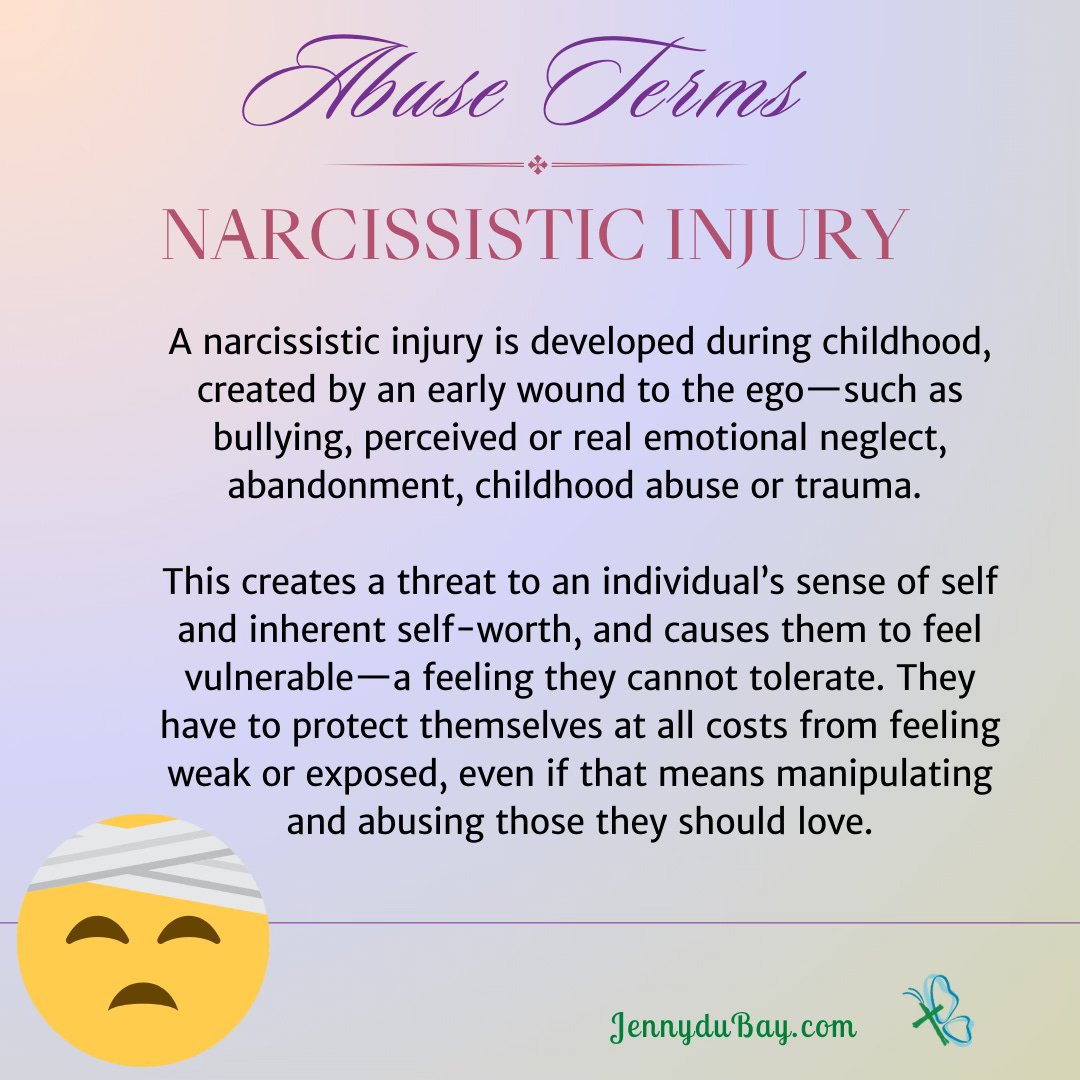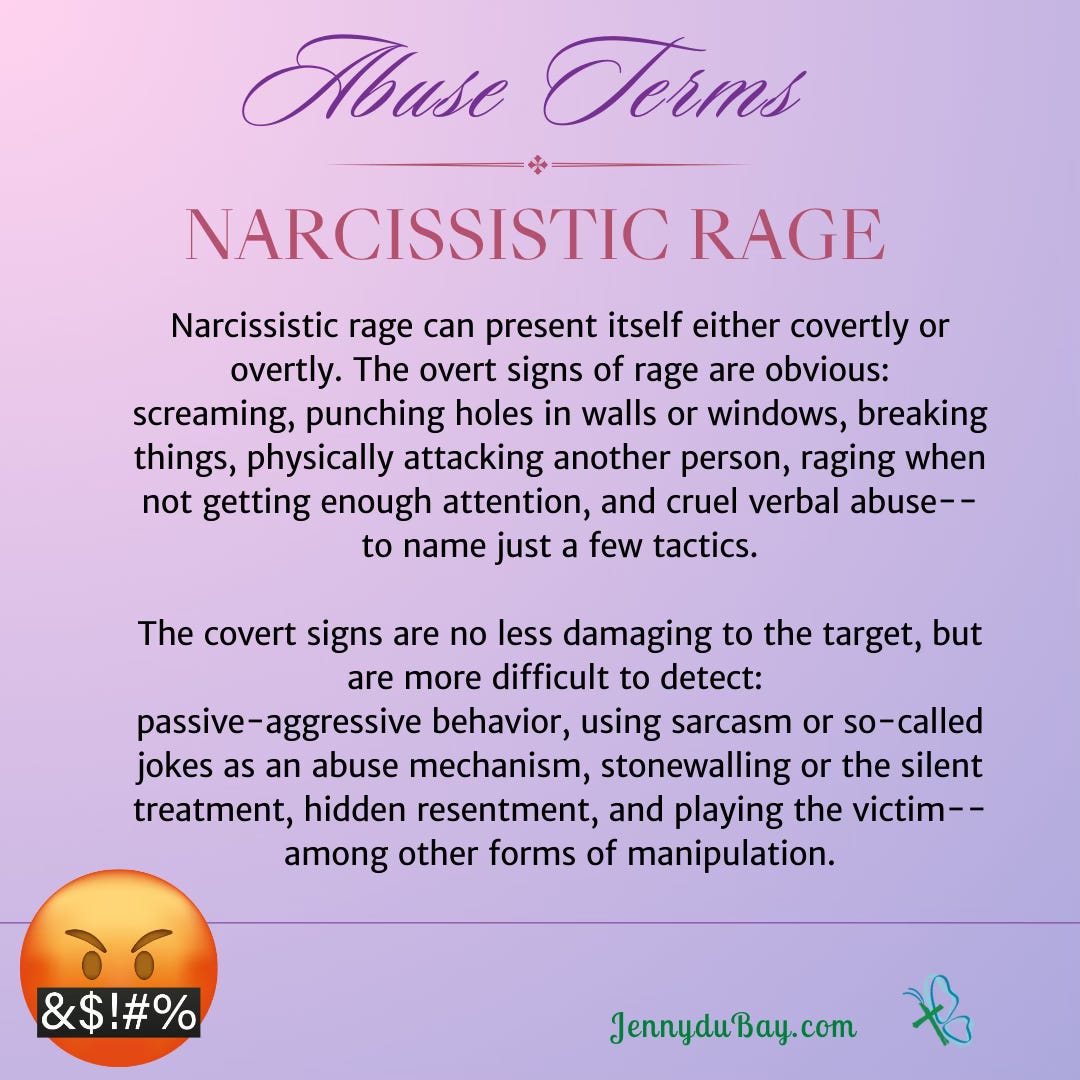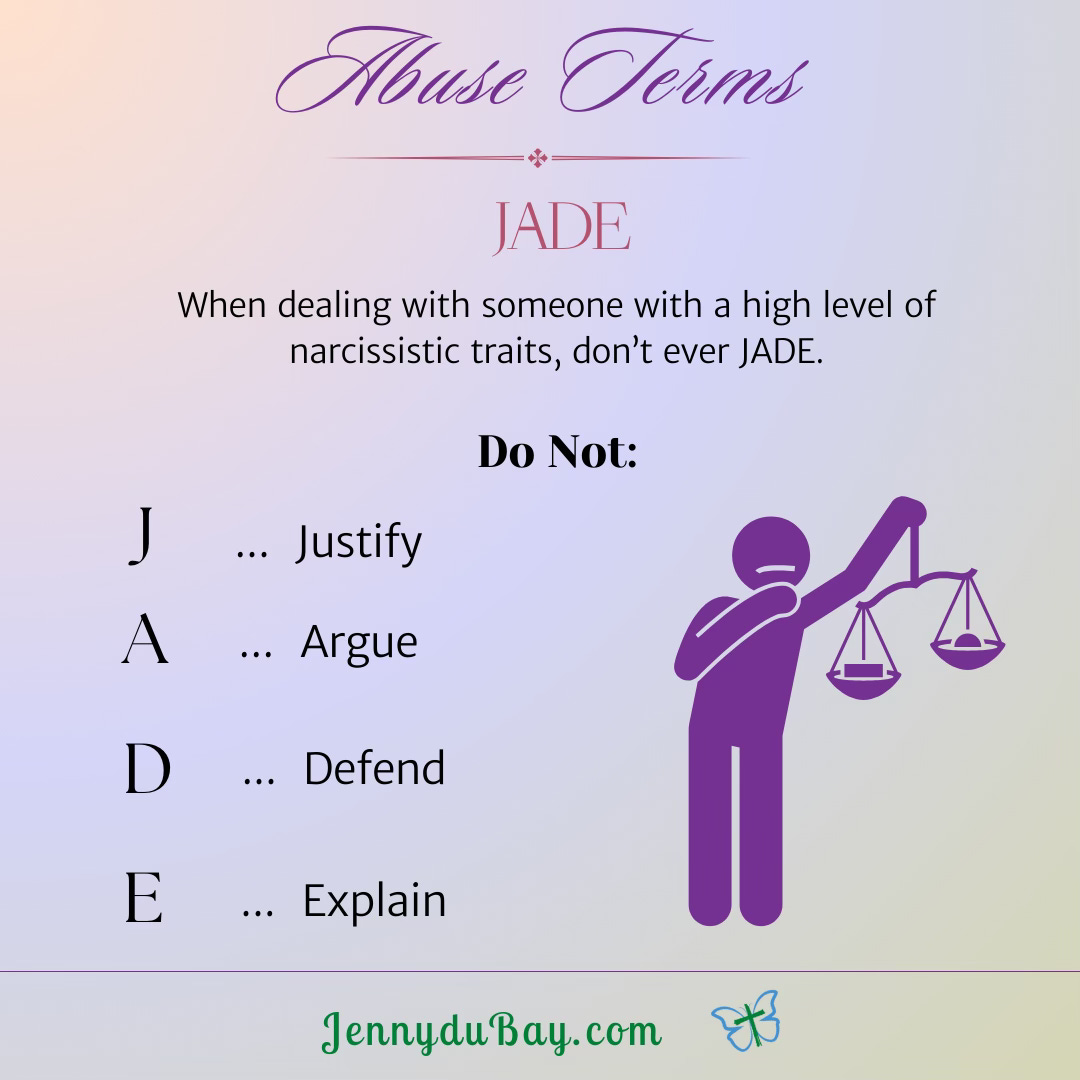Narcissistic Injury and the Rage That Follows
As my readers know, I hate to use the word “narcissistic” in my articles, because it’s such an over-used and misunderstood term. We can’t diagnose anyone as being an actual narcissist (which indicates they have Narcissistic Personality Disorder), even if we do recognize their toxic ego-focused traits that cause relational harm to others.
Sometimes, however, the word can’t be avoided, especially when we’re talking about previously-established abuse terms. That’s why, in this article, I’ll be discussing two traits common to those who abuse others: narcissistic injury and narcissistic rage.
Most individuals who engage in abusive tactics in order to manipulate and control their relationships do so because of an unconscious learned behavioral pattern caused by a narcissistic injury developed during childhood. A narcissistic injury is created by an early wound to the ego—such as bullying, perceived or real emotional neglect, abandonment, childhood abuse or other trauma. These wounds create what the child feels is a threat to their sense of self and inherent self-worth. It causes them to feel vulnerable—a feeling that creates shame in childhood, and a fighting need for avoidance in adulthood.
When an individual’s narcissistic injury is triggered, they tend to lash back with narcissistic rage —in other words, an abusive incident.
Warning!
The word “rage” is tricky, because it makes us think about an overt explosion, even though that’s often not the case. I frequently hear from clients, “He never gets loud, physically violent, or angry, so I’m confused—I know something isn’t right, but is he actually abusive?”
My answer is … well, it depends. Every situation and relationship is different, despite the common characteristics. With abuse, we’re looking for a pattern of continued behavior and attitudes—not an isolated bad incident of frustration and saying the wrong thing, followed by a genuine apology. What I do try to do is educate my clients and readers about is what narcissistic “rage” can look like in all its aspects.
I suggest that the term should be redefined as “narcissistic retaliation.” This would help avoid confusion, since the word “rage” often causes us to think of an overt, rambunctious, or violent outburst.
Overt physical retaliation is often not the case when a person’s narcissistic injury is jolted and the narcissistic rage comes out to play. Covert passive-aggressive abuse tends to be the most damaging because it’s so crazy-making and confusing. Often a bewildered victim is left wondering, “Did that really happen? Am I being too sensitive, just like he says—which means I’m always wrong, and he’s right? Or did I misinterpret his intentions?”
The doubt creeps in because often narcissistic rage takes the form of quiet, under-the-radar behavior. Stonewalling (when one partner refuses to engage emotionally with the other, and shuts down all opportunities of authentic communication), as well as an extended period of the silent treatment, are both forms of emotional neglect. They’re classic examples of passive-aggressive narcissistic rage. Playing the victim or using sarcasm and so-called jokes to manipulate a person can also be a form of covert abuse.
So what can you do to avoid triggering your partner’s narcissistic rage?
The bad news is—nothing. Someone with an ego injury is going to get triggered regardless of what you do—and usually for reasons you can’t predict. The goal posts are always moving, and that’s why dealing with someone like this results in having to walk on eggshells.
But there is hope.
The first step in deflecting the trauma of abusive experiences is to recognize what’s going on, as well as the dynamics behind it. This helps shut off the gas of attempted gaslighting—if we know what’s going on, we will stop shouldering the burden of blaming ourselves, feeling shame for the situation, or otherwise engaging in the crazy-making dynamics.
We take our own positive power back by not engaging in the negative power struggle in the first place.
Use the grey rock technique if a reply is needed—respond only with brief, boring answers (“yes,” “no,” “okay,” “if that’s your opinion,” etc.). If possible, don’t engage at all.
In other words, don’t JADE.
When we try to justify ourselves, argue our point of view, defend our actions and statements, or explain our beliefs and motives, we end up being drawn into the situation that caused the narcissistic rage to flare up in the first place. Instead, try to deflect. Be as boring as a grey rock, emotionally detach and—if possible—physically remove yourself from the situation.
I realize this may be easier said than done, at least at first. However, with practice—and praying for the emotional strength and stamina to stick to your boundaries—it becomes easier. However, if you’re in physical harm, removing yourself from the situation may be dangerous; if that’s the case, seek professional help, such as calling the Domestic Violence Hotline at 1-800-799-7233.








You are the best! Thank you for this and I agree retaliation is a better term as it can be intense but subtle.
As always, most helpful!!!